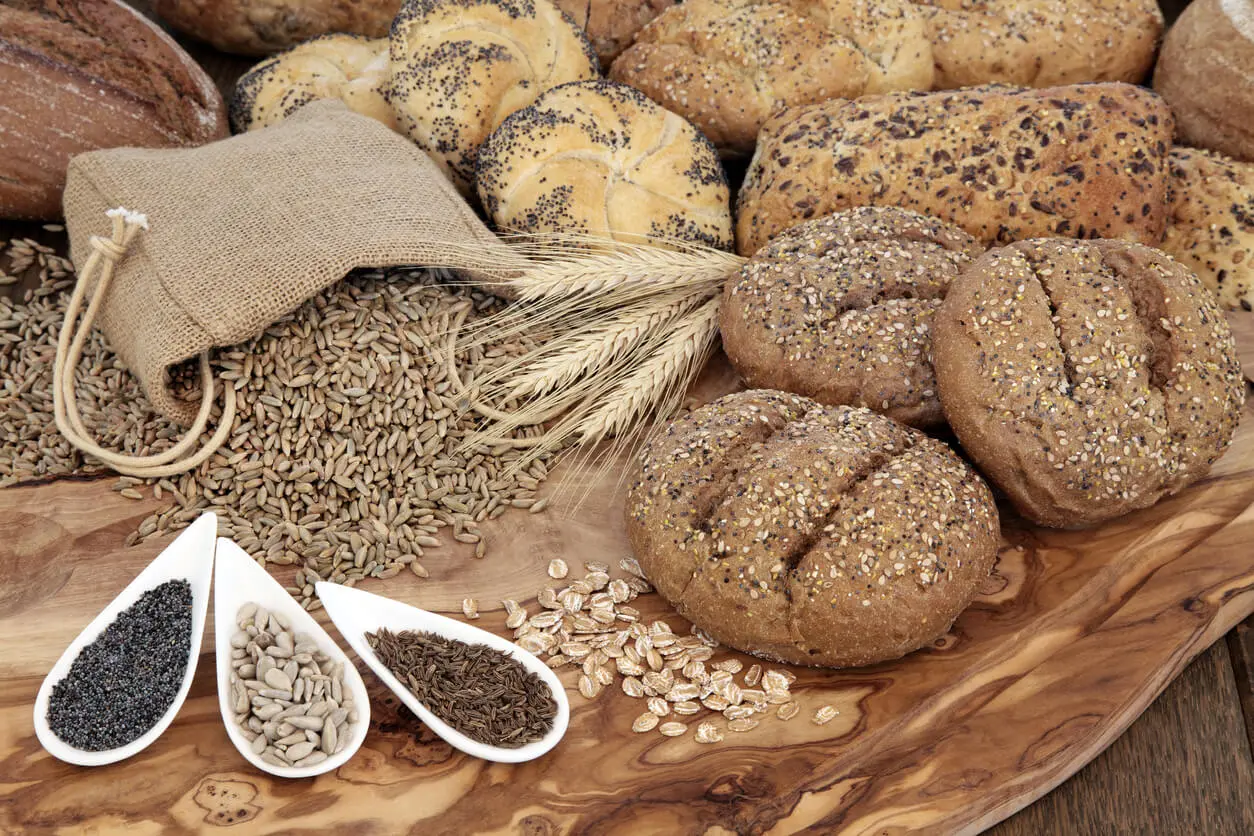How Many Carbs Should You Eat Per Day?
Key Takeaways
- Everyone needs a different amount of carbs per day depending on how active they are, their weight, their height, and their health goals
- Around 45–65% of your daily calories should come from carbohydrates; for healthy adults on a 2,000-calorie diet, this translates to about 225–325 grams of carbs per day
- Not all carbs are equal; complex carbs like whole grains, fruits, and legumes are better for weight loss and heart health, while simple carbs can cause energy crashes and contribute to weight gain
Carbohydrates, or carbs, are frequently misunderstood. Over the past few decades, diet trends have shifted from the low-fat fads of the ‘80s and ‘90s to a present-day focus on low-carbohydrate eating.
Diets like the ketogenic diet and Atkins diet, which emphasize minimal carb intake, are growing in popularity. This has led to widespread confusion and concern: are carbs truly "bad" for your health, or is this just the latest swing of the diet trend pendulum?
Read on to learn about carbohydrates' role in your body and how different types of carbs can affect your health and weight. We'll also help you determine your daily carb intake needs.
What are carbohydrates?
Carbohydrates are a type of macronutrient, and they serve as your body’s main source of energy. Your body needs large amounts of macronutrients, or macros, to function properly. When you eat carbs, your body breaks them down into glucose (blood sugar), which your cells then use for energy.
There are three main types of carbohydrates found in food:
- Starches: Found in some starchy vegetables like peas, potatoes, pasta, rice and lentils.
- Sugars: Naturally occurring in some fruits, vegetables and dairy products. Added sugar is often found in processed foods like cookies and candy.
- Fibers: Comes from plant-based foods like fruits, vegetables, whole grains and legumes.
Recommended daily carbohydrate intake
According to the 2020-2025 Dietary Guidelines for Americans, between 45% to 65% of a person’s daily calories should come from carbohydrates.
For example, someone who’s on a 2,000-calorie diet should consume about 225 to 325 grams of grams of carbs a day. That's equivalent to 2.5 cups of vegetables, 2 cups of fruits, 3 cups of dairy and 6 cups of whole grains per day.
How to determine your daily carbohydrate needs
To figure out how many carbs you should eat in a day, you'll need to figure out how many calories you should eat each day.
Typically, the recommended amount of daily calories for healthy adults is 2,000 for women and 2,500 for men. This number can vary depending on your age, height, current weight, gender, lifestyle & more, so it's best to work with a doctor or nutritionist to determine your ideal caloric intake.
Calculate 45% to 65% of your daily caloric intake to find out how many calories should come from carbs. Then, convert these calories into grams by dividing by 4, since each gram of carbs has 4 calories. This simple two-step process will help you understand how many grams and calories of carbs you should consume each day. You can find the grams of carbs per serving on the nutrition label of most food items.
Below are examples of daily carbohydrate needs:
- For a 2,000-calorie diet: 900 to 1,300 calories from carbs per day, which translates to 225 to 325 grams of carbs.
- For a 2,500-calorie diet: 1,125 to 1,625 calories from carbs per day, which translates to 281 to 413 grams of carbs.
Individuals with certain health conditions, like epilepsy or type 1 and type 2 diabetes, may have different daily carb intake needs.
Types of carbohydrates
Not all carbs are created equal. Different types of carbs will fall into one of two categories: simple carbs or complex carbs.
Simple carbohydrates come from high-processed foods or foods and drinks with added sugar. Typically, simple carbs provide calories without any nutrients, or "empty calories." Simple carbs are digested and broken down into glucose quickly. The glucose then enters your bloodstream all at once, which can cause sudden spikes in your blood sugar levels. These sugar spikes don’t tend to last long and often result in a sudden energy crash.
Complex carbohydrates come from whole and unprocessed plant-based foods. They are generally considered better for your health than simple carbs because they provide additional nutrients like fiber and vitamins. It takes longer for your digestive tract to break down complex carbs into glucose. As a result, complex carbs typically will not cause your blood sugar levels to spike and drop as dramatically as simple carbs.
Do carbs make you gain weight?
No, eating carbs doesn't automatically cause weight gain. In most cases, weight gain is the result of eating excess calories. Those excess calories can come from any macronutrient, not only carbs. When it comes to weight loss, the kinds of carbs that you eat play a large role.
Simple carbs are more likely to cause excess weight gain because they're low in nutritional value and get digested quickly. This can make you feel hungry shortly after eating, causing you to consume extra calories to feel more full. Simple carbs are typically found in high-processed foods with little to no nutritional value like candy, white bread, sugar-filled cereals and soda.
Complex carbs, on the other hand, are a part of many healthy diets that help promote weight management and weight loss. For example, the Mediterranean diet — which promotes eating a balanced mix of complex carbs, healthy fats, and protein — is one of the most effective diets to help manage obesity. It’s also been shown to help reduce the risk of health conditions like type 2 diabetes and heart disease.
In other words, it's not carbs themselves that are "bad." Instead, it's the kinds of carbs we eat that influences our weight.
Heart health and complex carbs
Complex carbs can fit into a balanced diet and can have many health benefits. Foods containing complex carbohydrates and whole grains are rich in fiber and other essential nutrients and vitamins. Fiber plays a key role in your heart health and can help lower your cholesterol levels and protect you against heart disease.
A few examples of healthy, complex carb-rich foods include:
- Brown rice
- Quinoa
- Sweet potatoes
- Oats
- Farro
- Lentils
- Chickpeas
- Butternut squash
- Peas
- Black beans
How Sesame can help
Exploring affordable weight loss options? Check out Sesame's online weight loss program, Success by Sesame! Your monthly subscription includes video visits with a licensed clinician of your choice and access to prescriptions for weight loss medication if appropriate. Plus, you'll have access to unlimited provider messaging for ongoing guidance and support.
Visit started on your weight loss journey today. Note that all prescriptions are at the discretion of your healthcare provider.









